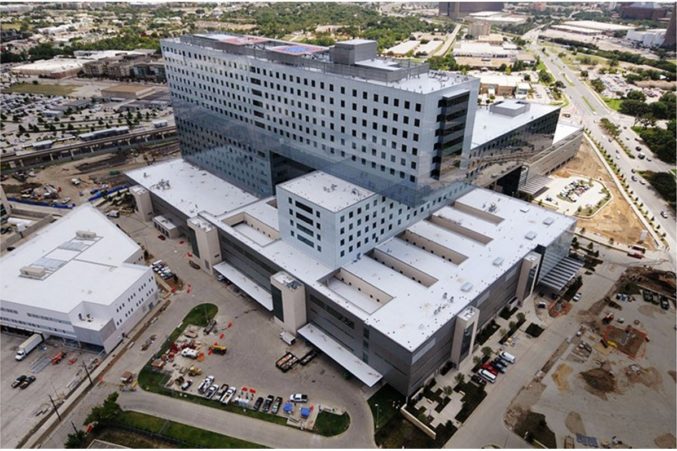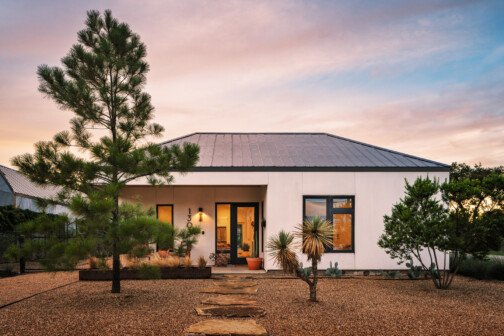The Dallas City Council on Wednesday approved 11 recommendations that the city manager will incorporate into its Comprehensive Housing Policy to improve racial equity. Multiple council members and speakers wore pins that read “All 15,” a reference to their collective support for the recommendations. And, indeed, the vote was 15-0.
“Today is definitely a historic day for the city of Dallas,” said Councilman Casey Thomas, the chair of Dallas’ Housing and Homeless Solutions Committee who led the effort to amend the policy. “It’s an opportunity for us to make a public statement that we acknowledge the harm that has been done from this [council room] in the past. That we’re committed to do things to move forward.”
The recommendations were the result of a yearlong racial equity audit of the city’s housing policy. TDA Consulting completed it in October 2021 and presented to city council in March. With the recommendations approved, Director of Housing and Neighborhood Revitalization David Noguera will work with his team to create a “visionary briefing” by December that will outline how to turn the recommendations into actionable policies and identify benchmarks to track success.
Importantly, the vote does not immediately tie the council to any policy decisions. Rather,City Manager T.C. Broadnax emphasized that the council’s approval means he has a lot of work to do. The recommendations are meant to be a corrective, a way to address equity in the housing policy that wasn’t included when it passed in 2018. Broadnax has to turn them into policy.
“The reality is, we’ve got to go, and create, and write a new policy in the lens of an equitable plan. We’ll be coming back to you, obviously, and spending the time doing that to make sure we get it right,” Broadnax said. “And then you will ultimately adopt that new, revised plan that reflects these types of issues and items, and addresses — hopefully — many of the concerns raised in this document. And then we’ll begin to share with you more specifically how we’ll fund those things and the approaches we’ll take to make sure that they’re sustainable.”
Everyone on council agreed that the 11 recommendations are needed: fixing the “infrastructure deficit” in southern Dallas, partnering with community organizations to improve economic mobility, pushing back against NIMBYism that concentrates low-income units in neighborhoods without transportation or healthcare access, creating a “dedicated revenue stream” for affordable housing projects.
But without money, these things fall flat. The current housing policy hasn’t motivated the volume of affordable units that the city hoped it would. And this council knows that these 11 recommendations won’t go anywhere unless they’re funded. That money will need to come from the city’s budget, but it will also require an investment strategy from banks that gets money to Black and Latino developers in parts of town where the lenders haven’t always been present.
Banking’s long history of restricting access to money in communities south of I-30 through “redlining” and other discriminatory lending practices led multiple speakers to highlight how Black developers based in South Dallas are often barred from building quality, affordable housing.
Noguera acknowledged the concerns about finances and gaining support from banks, and said that he had begun conversations with banks like JP Morgan on how they could support the city’s plans toward achieving greater racial equity.
“I think we’re having a healthy dialogue right now. The big question [the banks] have is ‘How do we help?’” Noguera said. “These are ongoing conversations that we’re having with different lenders and those with access to resources in the financial community.”
The racial equity audit of the Comprehensive Housing Policy is a single — albeit important — component of a citywide racial equity audit for which Thomas expects to be briefed in August. As the council prepares to vote on the city budget in October, Thomas reiterated that the council would need to sustain action and purpose to achieve greater equity in Dallas.
“Many people who are sitting in here today would not have heard this discussion if they had not been present in this chamber. And I simply make that point to say it requires many people who may otherwise be uncomfortable to speak up and say something,” Thomas said. “Dallas will never be the city it can be until Dallas becomes an equitable city. We have to understand equity, put equity first, and move forward from there.”
“All 15” voted yes, but the work is only beginning.
D Magazine is a member of the Dallas Media Collaborative, a group of local news outlets, nonprofits, and one performance art organization aligned to explore affordable housing in North Texas. This story is reported in partnership with the Dallas Media Collaborative, with support from the Solutions Journalism Network. For more stories, visit dallasmediacollab.com. Have ideas for us? Email [email protected].






